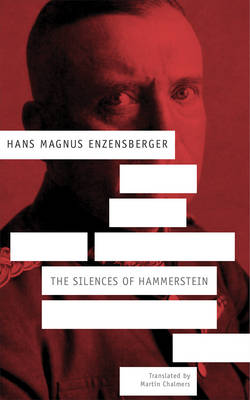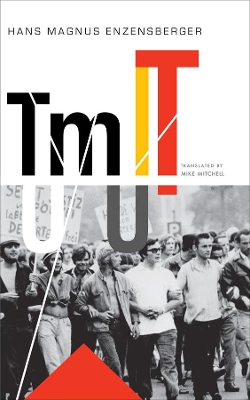SB-The German List
2 total works
The Silences of Hammerstein, the latest work from one of Germany's most significant contemporary authors, engages readers with a blend of a documentary, collage, narration and fictional interviews. The gripping plot revolves around the experiences of real-life German General Kurt von Hammerstein and his wife and children. A member of an old military family, a brilliant staff officer, and the last commander of the German army before Hitler seized power, Hammerstein, who died in 1943 before Hitler's defeat, was nevertheless an idiosyncratic character. Too old to be a resister, he retained an independence of mind that was shared by his children: three of his daughters joined the Communist Party, and two of his sons risked their lives in the July 1944 Plot against Hitler and were subsequently on the run till the end of the war. Hammerstein never criticized his children for their activities, and he maintained contacts with the Communists himself and foresaw the disastrous end of Hitler's dictatorship.
In The Silences of Hammerstein, Hans Magnus Enzensberger offers a brilliant and unorthodox account of the military milieu whose acquiescence to Nazism consolidated Hitler's power and of the heroic few who refused to share in the spoils.
In The Silences of Hammerstein, Hans Magnus Enzensberger offers a brilliant and unorthodox account of the military milieu whose acquiescence to Nazism consolidated Hitler's power and of the heroic few who refused to share in the spoils.
Hans Magnus Enzensberger, widely regarded as Germany's greatest living poet, was already well known in the 1960s, the tempestuous decade of which Tumult is an autobiographical record. Derived from old papers, notes, jottings, photos, and letters that the poet stumbled upon years later in his attic, the volume is not so much about the man, but rather the many places he visited and people whom he met on his travels through the Soviet Union and Cuba during the 1960s. The book is made up of four longform pieces written from 1963 to 1970, each episode concluding with a poem and postscript written in 2014. Tumult is based on Enzensberger's personal experience as a left-wing sympathizer during that tumultuous decade and focuses on political events and their participants. Translated by Mike Mitchell, the book is a lively and deftly written travelogue offering a glimpse into the history of leftist thought. Dedicated to "those who disappeared," Tumult is a document of that which remains one of humanity's headiest times. "Enzensberger is the most important postwar writer you have never read." London Review of Books

